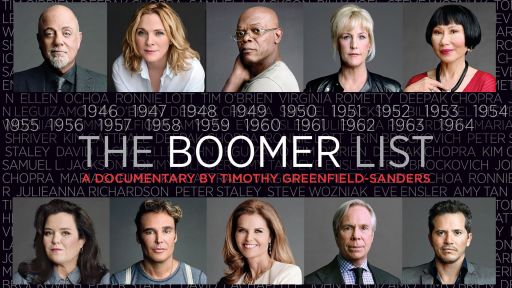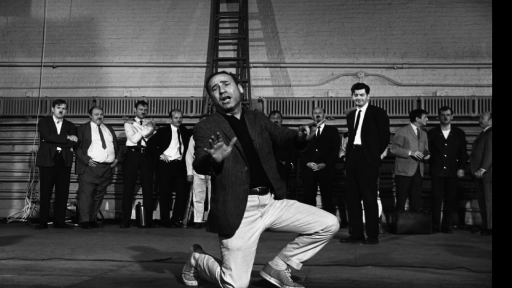When Dick Cavett first started doing standup, he quickly learned that performing comedy yourself and writing comedy for another person are two very different ventures. In this outtake from “Groucho & Cavett,” Cavett reflects on the trial and error in his early days of standup and the lessons he learned along the way.
Written Features

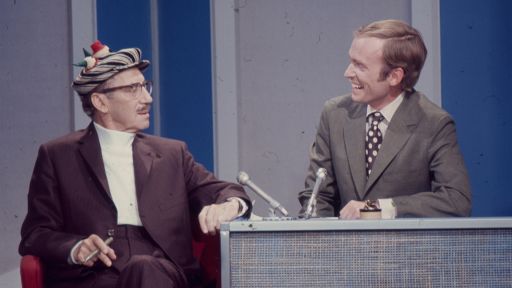
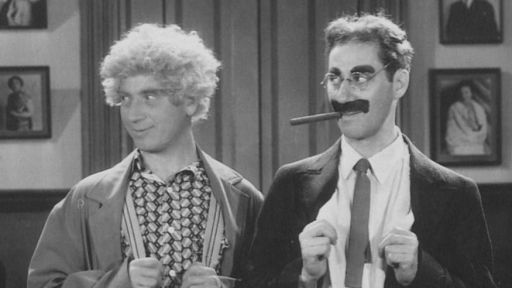
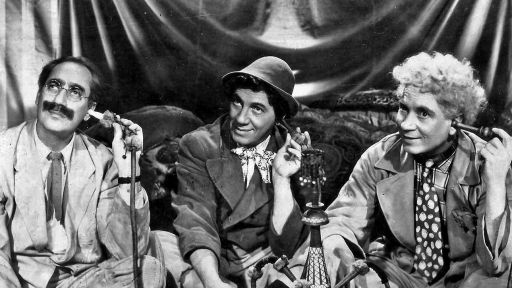

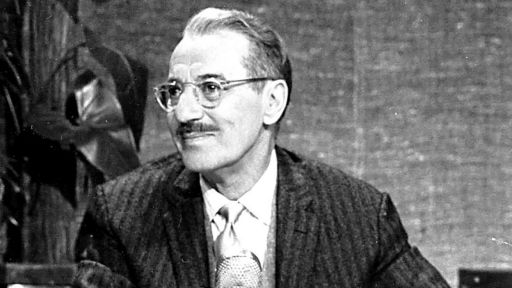

Video Features
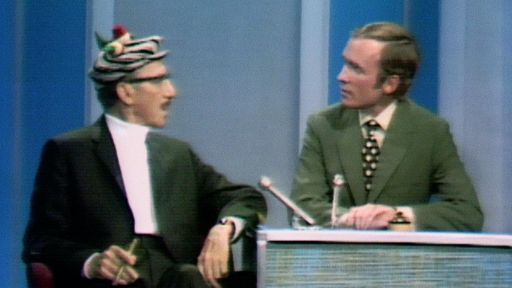

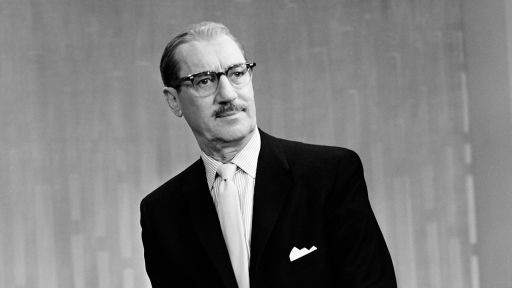

- Johnny was very fond of me and that made working for him a pleasure.
He wasn't of everybody, as we know.
So, once when I said, you know, 'I'm thinking about doing an act at a club in the Village,' he encouraged me.
And he said, 'As long as you don't keep all your best stuff for yourself,' 'cause I was still working for him.
And he would ask me when I did start doing clubs, 'How'd it go last night?'
And we would laugh.
And I would ask him, 'Why does this joke that killed 'em at the 8:00 show, get nothing at the 11:00 show?'
And stuff like that, we'd talk about.
He was wonderful on these subjects.
It didn't occur to me until now that I should have said, 'Why don't you come down to see me some night?'
But Johnny went almost nowhere.
But I got my act together, a horrible chore.
I was friends with Woody by that time, and knew him rather well, and knew how he worked, and so on.
And I said, 'Is it gonna be a nightmare going on stage?
I know it was for you,' as he admitted.
But our legendary Jack Rollins' office, which handled us both, encouraged him to do it.
Made him do it.
And he's a very tough guy, and he got through awful... It was so painful for him.
Anyway, so he said, 'It might be hard at first, but the worst part will be writing for yourself.'
And I thought, how's it gonna be hard?
When I go into the studio I'm unpleasantly looked upon by other writers because as soon as I hear the subject, I can fill two pages at almost typing speed.
And he said, 'It's different when you write for yourself.'
Boy, was he right.
He said, when I do it, Woody who could write 40 funny lines and send them to columnists when he was a teenager, said writing for himself just paralyzed him.
He said, 'I don't know what I look like 'standing on the stage.
'And sometimes you can sit for an hour 'in this hard-ass job before you get a good line.'
I thought, that's silly, I fill... Yes, he was right.
Because you don't know who you are on stage.
How do they see you?
You don't, I'm not short enough to be a freak and have my material be about that.
Nor am I fat enough to do the wonderful fat jokes that there are.
And I wasn't anything in particular except a young guy from Nebraska.
And I can't think of any other comedian who can say that.
So I had a hard time.
But I finally got enough that Jack Rollins said, 'Kid, I think we're gonna put you on at The Bitter End nightclub in the Village.'
I went, 'Oh geez.'
I did a dumb thing my first night.
I asked the emcee to not say 'He's a comedian,' which was a dead wrong thing to say.
I said, 'Here's a young man who wants to speak to you.'
And I came out, and I was received as a lecturer.
In fact, a woman who was leaving that day, the doorman said, 'Mr. Cavett, 'I don't know how to tell you this, but a lady said, 'be sure to commend the young man who lectured.'
So that's where I got that idea.
I went on stage.
Woody was there, Rollins was there, the owner was there.
I thought, these people are gonna be really surprised 'cause I'm gonna be very good, because I've been a magician doing comedy back in Nebraska for $35 a show, for a couple years.
And I ad-lib with it, I'll be great.
Anyway, I went on, made that dumb mistake about young man who wants to talk to you.
And after about three lines that had nothing about them from the audience reaction to identify them as comedy, I began to sweat.
And then I began to sweat some more.
And then the sweat on my forehead, it's known as flop sweat in the business, dammed up over my eyebrows.
But every so often it would, the surface tension would break and a sweat would drip down onto my face.
Whoa, God.
Well, so there I am flopping in front of my manager, Jack Rollins, and other people that I knew were in the audience.
And I wanted them dead because they had seen my disgrace.
And in fact, Jack politely, my manager, had gone outside and sat on the fender of a car about halfway through.
And when I came out, he knew from what he'd heard.
And he said, 'Well kid, you may have fouled out tonight, but you're gonna go on tomorrow night.'
And I said, 'I'm through in this business, aren't I?'
And he said, 'No.'
I said, 'This is cruel, Jack.
I just didn't get any laughs.'
So he put me on at another club called The Improv.
And I went on there the next night, forcing myself.
And everything I had said the night before got a huge laugh.
I was greeted as the comedy find of the year.
And I said, 'Jack, what is that?'
He said, 'Nobody knows.
It's happened to everybody at some point.'
There was this traditional route and it was The Bitter End, and the club or two in the Village.
And then off to Chicago for Mister Kelly's legendary jazz and nightclub.
So there I was in a nightclub with my name out front.
Not as big as Mel Torme's, happily.
But the fact that it was out there, I think, may have irritated him a little 'cause who knew who I was.
But anyway, we got on well.
And it was a good week, as they say.
And I got big laughs most of the time.
From Chicago, you were carted to the great Hungry I, the legendary Hungry I in San Francisco.
And my act is killing 'em.
And I thought, I'm on my way.
I will never have a bad moment in this business again.
Reported to the club, walked on stage, started my act, nothing, zilch, bupkis, no laughs.
Not even a strong breath of reaction, nothing.
And it throws you.
You feel like you should gasp for air.
Why?
It was great last night.
Same old thing as before.
Huh, I remember there were two lesbians who had their boots on the edge of the stage, sitting in the front row.
And I kicked one of their boots off the stage, and they truculently weathered that admirably.
And then I said, 'Why don't you all just get the hell out of here?'
I have a tape of that somewhere.
It was refreshing feeling.
Oh, and the two ladies got up, walked to the door.
And as they got to the door to go out, I said, 'There are no refunds.'
And one of them said, 'We'll take a chance.'
And she got a laugh!
(interviewer laughing) It was awful.
The last sound on the tape of my feet walking off stage with no applause, no laughter, no nothing. (laughs) - [Interviewer] Okay.
(jaunty music)
You May Also Like

